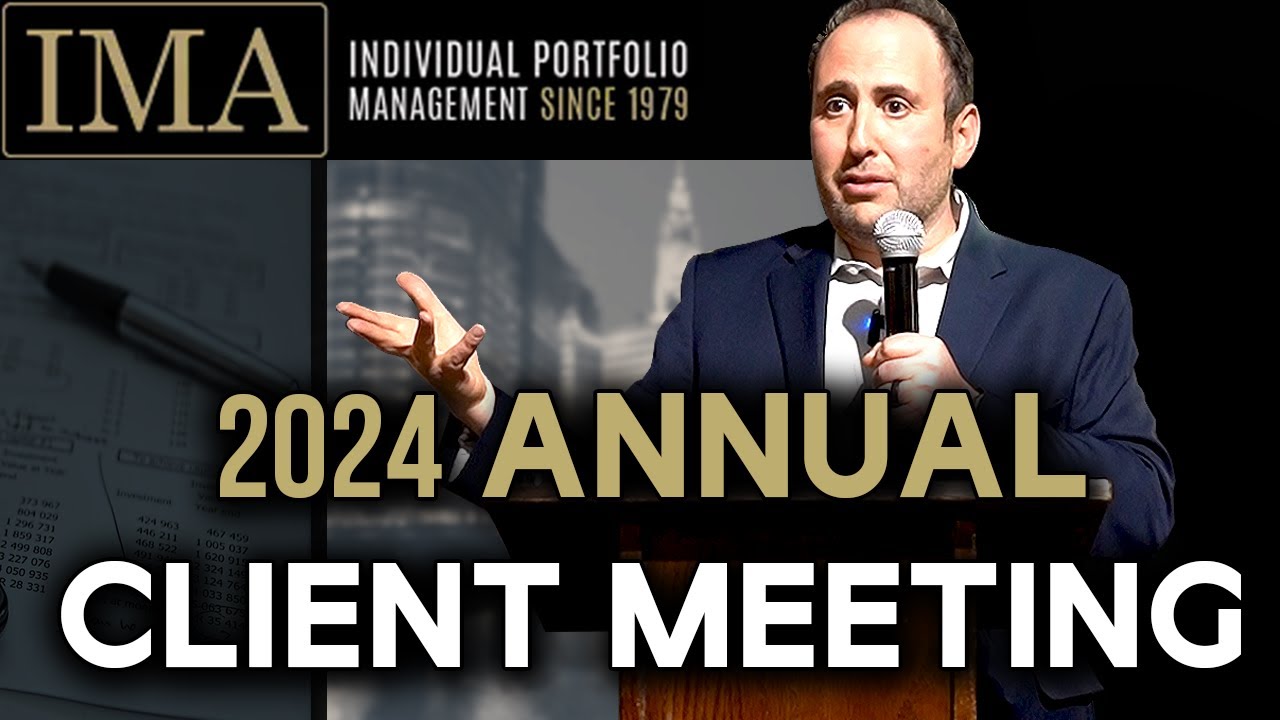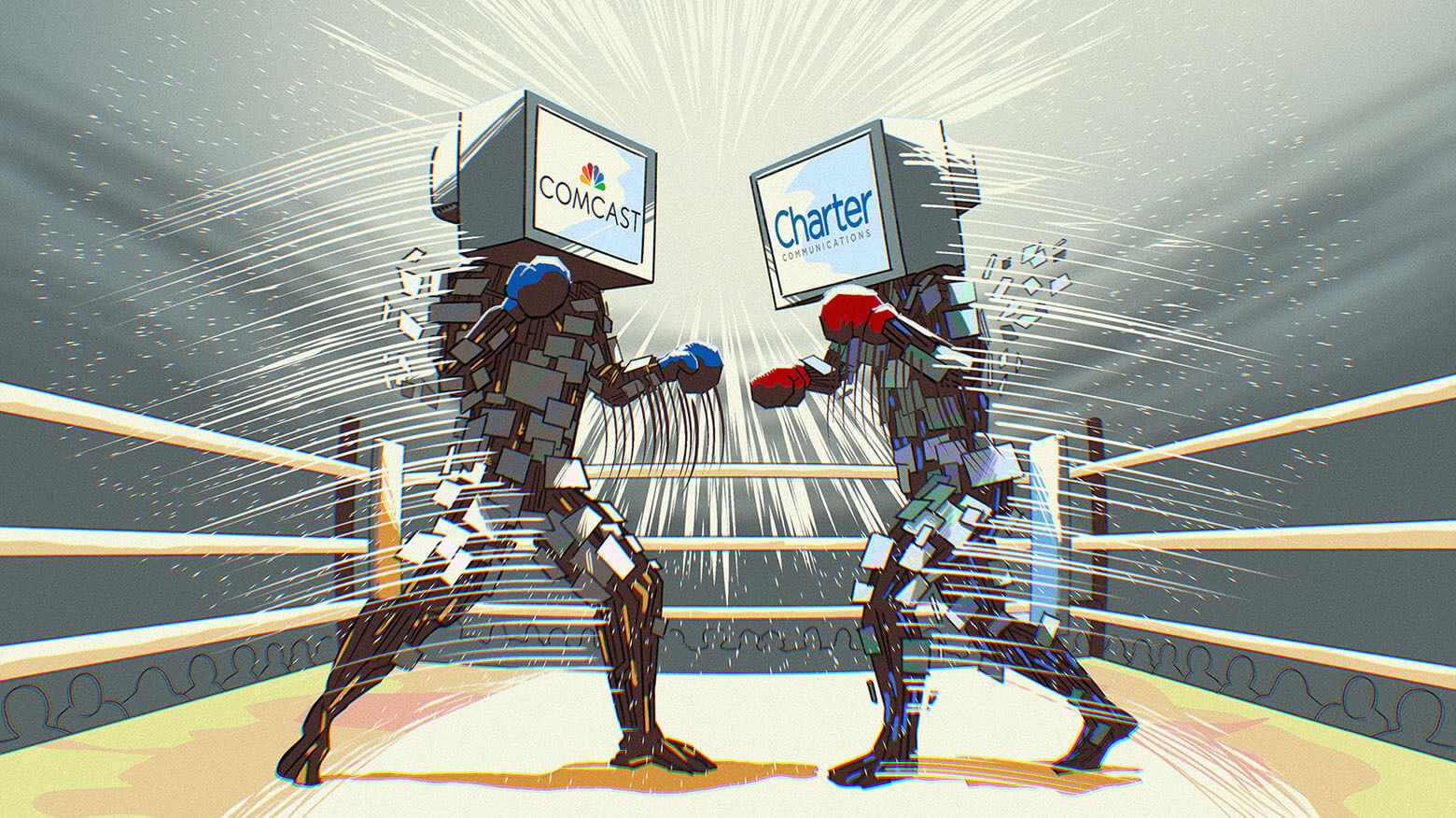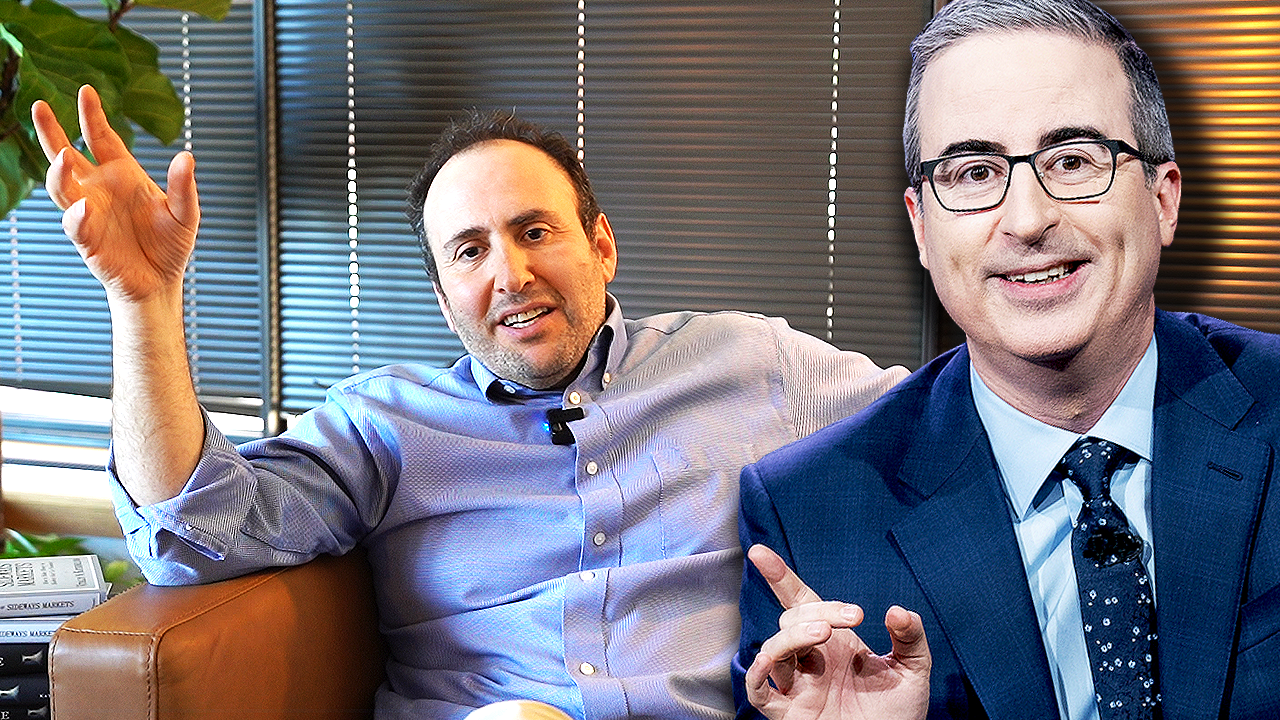Below is a letter we recently sent to clients about how we are responding to the recent market selloff.
“But investing isn’t about beating others at their game. It’s about controlling yourself at your own game.”
– Benjamin Graham, The Intelligent Investor
“The investor’s primary interest lies in acquiring and holding suitable securities at suitable prices. Market movements are important to him in a practical sense, because they alternately create low price levels at which he would be wise to buy and high price levels at which he certainly should refrain from buying and probably would be wise to sell.”
– Benjamin Graham, The Intelligent Investor
Dear Client,
We are going to temporarily change our communications with you from in-depth a few times a year to more frequent but less in-depth.
Just Another Day at IMA
If you walked into the IMA office any day of the week when the market was down 5% to 10% (day after day), you’d see a happy, smiling team, intensely engrossed in research – building and reviewing financial models, scouring through watch lists, talking on the phone to our investment network, reading, or discussing our game plan. You’d think the market was up 10%, not down.
Now, we derive no pleasure from the pain of others, and the accounts of our portfolio managers and their extended families are riding the same roller coaster as you. But here is our perspective: We look at our portfolio and see that the market has indiscriminately marked every company down, and the coronavirus may have reduced what some of them will earn over the next … we don’t know … quarter or two, or possibly a year.
But the value of any asset is the present value of its cash flows, which will include good and bad quarters, economic expansions and recessions. We have put a lot of work into our research and have a very good idea what our companies are worth, and their value has not declined by 10% day after day this month. No, it’s that just panicked investors decided to pay less for them. They were undervalued to begin with, so the discount got wider. We were not planning to sell them, since we have a long-term time horizon (otherwise we wouldn’t be in stocks at all). Also, most (though not all) of the stocks we own won’t be impacted much by an economic slowdown (that’s by design).
So why would we care what panicked, stressed investors think of our fine companies, especially when they are not valuing them but just indiscriminately selling them?
In fact, though we are anything but celebrating the toll coronavirus will take on human life and the global economy, we are embracing this crisis as an opportunity to increase the long-term returns of our portfolio. In other words – though it will not feel like this in the short run – this will be one of the best things that has happened for your portfolio in the long term. Cash and hedges (that at some point will be turned into cash) will provide us opportunities to buy ridiculously undervalued stocks.
Just as greed leads to more greed during a bull market, fear feeds on itself and leads to more fear. Panicked investors are doing what they always do – excitedly buying high and then sheepishly selling low. It is hard not to panic when the store shelves are emptying and you’re locked down with your loved ones, without even a major sporting event to watch on TV.
So panic has not been the name of the game at IMA. Quite the opposite has happened: We have received emails and phone calls praising us for being a steady, process-driven hand at the wheel, expressing confidence in our process and encouragement, from most of our clients. Some contacted us asking if they should send us more money.
I’ve been asked by clients for years to tell them when they should send more money, and for years I have told you to wait because we already had a lot of cash; but now it looks like the window of opportunity is opening. Despite the selloff, an average stock is still expensive; but since the selloff is indiscriminate, we are starting to see great businesses approaching very attractive valuations. (We tiptoed into one last week.)
The slogan on our website says: “We grow your wealth; you don’t worry about the markets.” Although in the first three months of 2020 we haven’t done a great job with the first part of that slogan (yet), I would say, based on our recent client feedback, that we’ve done a very good job with the “you don’t worry about the markets” part this year, despite the precipitous market plunge. So if you were waiting to add money to your account, now is a good time.
We’ve had a few clients ask us what our game plan is. Let’s focus on that.
The Game Plan
“Everyone has a plan until they get punched in the mouth.”
– American philosopher Mike Tyson
We have spent a lot of time researching coronavirus and COVID-19, and now, with confidence, we can tell you that we don’t know how this will play out. Nobody does. It may go away in a month, or it may linger much longer. The optimist in us thinks that although over the next month or two things will get worse, they will then start getting better. (Just as it is hard to see what would ever stop good things from continuing forever, it is hard for us to see how bad things will stop).
The virus may get contained, as it was in South Korea through testing and digital monitoring, or through social distancing and quarantining, the approach that has worked in China.
I was glad to see lines for toilet paper, not because I was nostalgic for my youth in the Soviet Union, but because it told me that Main Street is finally taking the coronavirus seriously. Now, social distancing and lots of hand washing will slow down the spread of the virus. (The cashier looked at me like I was an idiot two weeks ago when I bought half of Costco.)
My biggest hope is that capitalism will win – that pharmaceutical companies will find a cure or a vaccine. I’d bet on capitalism – our selfish perpetual engine with the power to do seemingly impossible things.
Finally, the virus may simply get killed by plenty of sunlight –something that happens every year with the flu.
The realist in me hopes the optimist is right but thinks COVID-19 may linger longer than a few months (especially after seeing the damaging and embarrassing US response to date). How much longer? We don’t know. From today’s perch a global recession looks unavoidable; in fact we are most likely already in recession. We are positioning our portfolio and our strategy as if the virus is here to stay for a considerable time.
We are hoping for the best but preparing for the worst.
We had not been positioning our portfolio for a virus but for a recession; and since this virus will cause a recession, we find ourselves owning a lot of recession-proof “anti-viral” stocks (a lot of them are in healthcare). Also, we have lots of cash and hedges (where we are allowed).
“Life can only be understood backwards—but it must be lived forwards.”
-Søren Kierkegaard
I was discussing the Great Recession with a client, and he was reminiscing about how it would have been nice to buy stocks in March 2009. I spent a lot of time thinking about that lately, and here is the reality of it: It is only “nice” from today’s rear-view mirror perspective.
If you bought stocks six months, a month, and or even a day before March 9th, 2009, Mr. Market would have schooled you: “Don’t buy, just sell.” Just as during bull markets every sell decision stirs subsequent regret, and every buy decision brings instant confirmation of your brilliance.
The lessons Mr. Market teaches during one of his manic-depressive moods are usually the wrong lessons – opposite from what you should be learning. It is now clear as rain that you should have pawned your favorite cat and bought the market in March 2009, but it sure as heck wasn’t clear then. If you turned on your TV or read the newspaper in March or even April 2009, every single headline raised your blood pressure. The news was depressing – even worse than it had been six months before.
I promise you that at some point in the future we’ll know that on this or that day we should have gone all in on stocks, but we are not historians ensconced in the future, and we don’t have that luxury.
There is a saying on Wall Street: “They don’t ring a bell at the bottom.” They really don’t. So today we have to drive with a very foggy windshield and just continue doing what we have done all along – buying high-quality, significantly undervalued businesses. Here is what we know: You can have clarity, or you can have undervaluation; you cannot have both. Today we have anything but clarity, but undervaluation is coming to us real fast.
Why not go to cash now and just buy lower? Today we own a lot of 25–50 cent dollars (we sold 85–90 cent dollars a few weeks ago). We could sell them and hope to have a chance to pick them up for 15 or 20 cents. But we may or may not get that opportunity, and quite frankly we like the businesses we own.
A client asked, why not wait until things settle down, when this irrationality has stopped? My response was, would you rather play poker against professional poker players or drunken sailors? “Drunken sailors, of course!” he retorted. When fear rages, time horizons are squeezed to nothing, and portfolios are liquidated because people were overleveraged to the hilt, the market is awash with drunken sailors. This is when you want to invest. You have to accept that every (buy) decision you make will look “wrong” the very next day, but that is par for the course.
So what do we do now?
Maintaining a long-term time horizon is paramount. Every decision we make, we need to make from the perspective not of tomorrow but three to five years from now.
Every company we add should either be robust (get through the crisis) or antifragile (benefit from the crisis). This doesn’t mean that these businesses won’t be impacted by the crisis.
In fact, we are counting on the fact that some of these companies will be impacted. That is what will create the opportunity to buy them, because most investors will be focusing on the next six months while we’re focusing on the next six years.
For instance, there are certain companies in the travel industry that we’d love to buy (not airlines) whose business will be disrupted by the coronavirus. We expect their stocks to be kissing dirt, but as long as these businesses survive the virus (we are only interested in the ones that have a very good chance of doing so), they’ll provide incredible opportunities when COVID-19 is behind us and our lives return to normal. (Which they will.)
Position sizing. Recessions are only events in hindsight; in real time they are processes. We are in the early innings of one. This time around, its duration is not going to be determined by economic rhythms but by a virus. We are coming to this party with cash reserves (and hedges) that we intend to put to work. But since we don’t know how long this party will last, we’ll diversify our ignorance through time by employing a micro-dosing (investment) strategy. Yes, I know you probably did not expect your money manager to be using this word.
The markets are very volatile, and instead of building a position in one or two scoops, we’ll reduce our initial purchases to “micro doses” – 0.25% to 1%. We’ll build positions over time.
For example, last week we bought a 1.5% position in Berkshire Hathaway – we bought it in two scoops, first 1% and then 0.5%. Our goal is to maximize the buying power of our cash but at the same time to put it to work – we don’t want to waste this crisis.
Accept imperfection. We are aiming not for perfection but for rational, thoughtful, analytical decisions based on the information we have on hand – though we accept that in hindsight our decisions will probably be seen as imperfect. Here is an example. Though we raised cash when it became apparent to us that the virus was coming ashore, we could have sold more. We accepted this imperfect decision and moved on.
Options. In this letter in 2018 we described our reasons for hedging. We buy insurance (put options) when it is cheap and hope a hurricane doesn’t come.
Unfortunately (or fortunately, depending on your perspective), our options came alive over the last two weeks. Most but not all accounts have options for client-specific reasons. We are looking at these options as a future source of cash, but we are going to tread lightly here, as they protect us against low-probability but extreme outcomes.
Our plan today, though this may change, is to use up cash in the account first (again, we’ll proceed very judiciously) and then start monetizing put options.
We own put options on two instruments (again, this may vary from account to account): (1) on the S&P 500 and (2) a corporate bonds ETF (LQD). Options on LQD should only work if the economy is going through severe distress and corporate defaults spike. Fortunately, the shortest maturities for our options go through June, and many go into 2021, so we don’t have to make decisions on them for a while.
Just a reminder: Risk for us is not volatility but permanent loss of capital. We almost don’t care what this market thinks about our stocks in the short run (unless we want to add to them). Over the last couple of weeks a lot of positive developments happened to several of our companies, but we’ll address those in our letter next week.
I know it is hard to think this way today, but the coronavirus may be the best thing that has happened to your account.
P.S. This is a great time to revisit the Six Commandments of Value Investing – a chapter from my future (yet, still unfinished) book, where I discuss Ben Graham’s principles of value investing in depth. You can read the chapter here or listen to it here.










0 comments